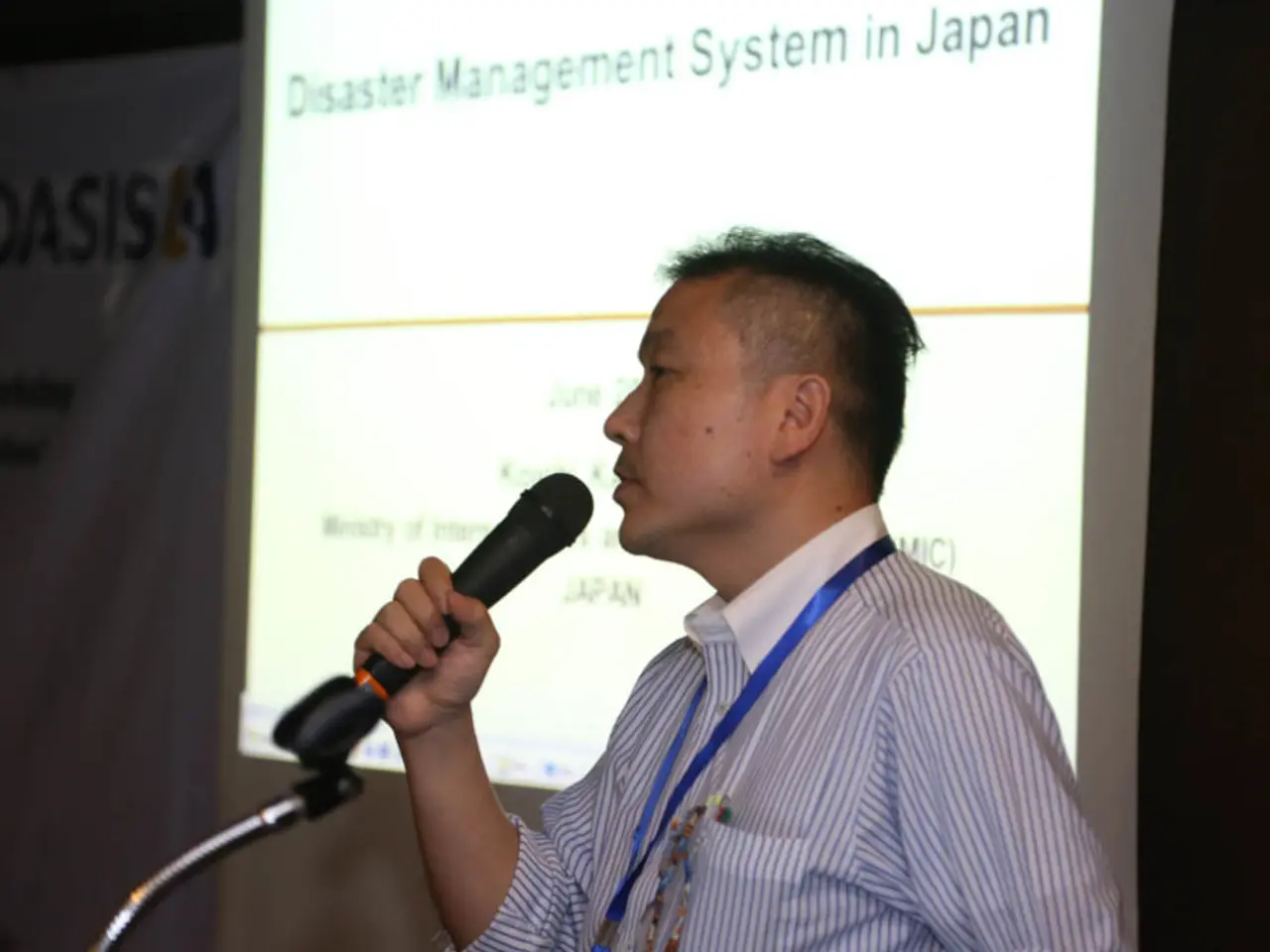Foreign elections could face intrusion from overseas powers, authorities cautioned
In the lead-up to the House of Councillors election scheduled for July 2025, Japanese officials have expressed increasing concerns about potential foreign interference in the electoral process, particularly through social media.
At a press conference on July 15, 2023, Digital Transformation Minister Masaaki Taira raised the issue of foreign interference in connection with the recent House of Councillors election held on July 13, 2023. Taira did not specify any particular state actors or operations, but mentioned there were "some reports" suggesting the possibility of foreign interference.
The Japanese government has acknowledged the risk and is taking steps to respond. According to Deputy Chief Cabinet Secretary Kazuhiko Aoki, the government intends to bolster Japan's capacity to handle information warfare, specifically targeting the spread of disinformation from abroad. Aoki made these comments at a press conference on July 16, 2023, which was focused on Japan's efforts to tackle foreign interference in their elections.
One specific incident drawing scrutiny is the interview of a Sanseitō candidate on Sputnik, a Russian state-owned news agency. The party reportedly fired a staffer for authorizing the interview without approval, and government sources privately cited analyses pointing to activity by foreign bots on social media platforms.
Officials emphasize the importance of enabling voters to make free and informed choices, which implies a focus on public awareness campaigns and media literacy to counteract foreign disinformation. The government has also indicated a need for further investigation into reports of interference, suggesting increased surveillance of social media for signs of coordinated manipulation.
Political leaders have used the specter of foreign interference as a campaign issue, warning of risks to democracy and leveraging public concern in the final days of the electoral race. The government's approach combines policy strengthening, public communication, and investigative measures, but the challenge will be to balance vigilance with transparency and civil liberties.
Although specific, confirmed cases of foreign social media interference in Japan remain limited, the government’s public warnings and the Sanseitō episode reflect a tangible shift in awareness. Japan is moving to address vulnerabilities in its electoral process, recognizing that its historically lower exposure to such threats may be changing as social media’s role in politics grows.
As countermeasures develop, Japan’s approach will be closely watched as a potential model for other democracies facing similar hybrid threats. However, it is essential to maintain a balance between ensuring electoral integrity and upholding civil liberties and transparency.
- Digital Transformation Minister Masaaki Taira has highlighted the need to investigate and address potential foreign interference in Japan's elections, particularly through social media, following the House of Councillors election in July 2023.
- In an effort to counteract foreign disinformation and ensure a free and informed electorate, the Japanese government has emphasized the importance of public awareness campaigns, media literacy, and policy strengthening as part of their approach to tackling foreign interference in elections.
- As the Japanese government moves to address vulnerabilities in its electoral process in response to potential foreign interference, such as the case of a Sanseitō candidate's interview on Sputnik, they aim to strike a balance between electoral integrity and civil liberties, serving as a potential model for other democracies facing similar hybrid threats.






